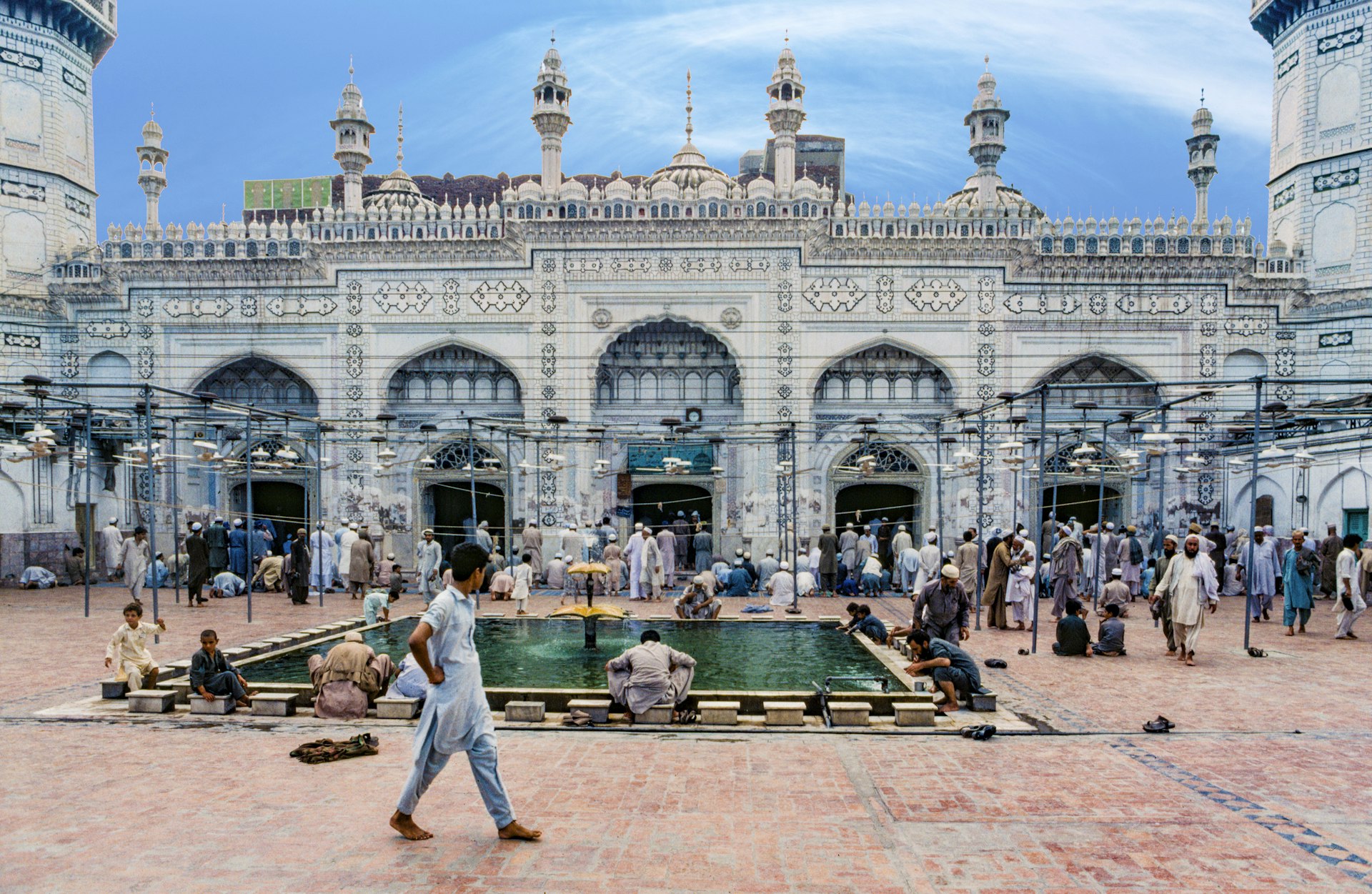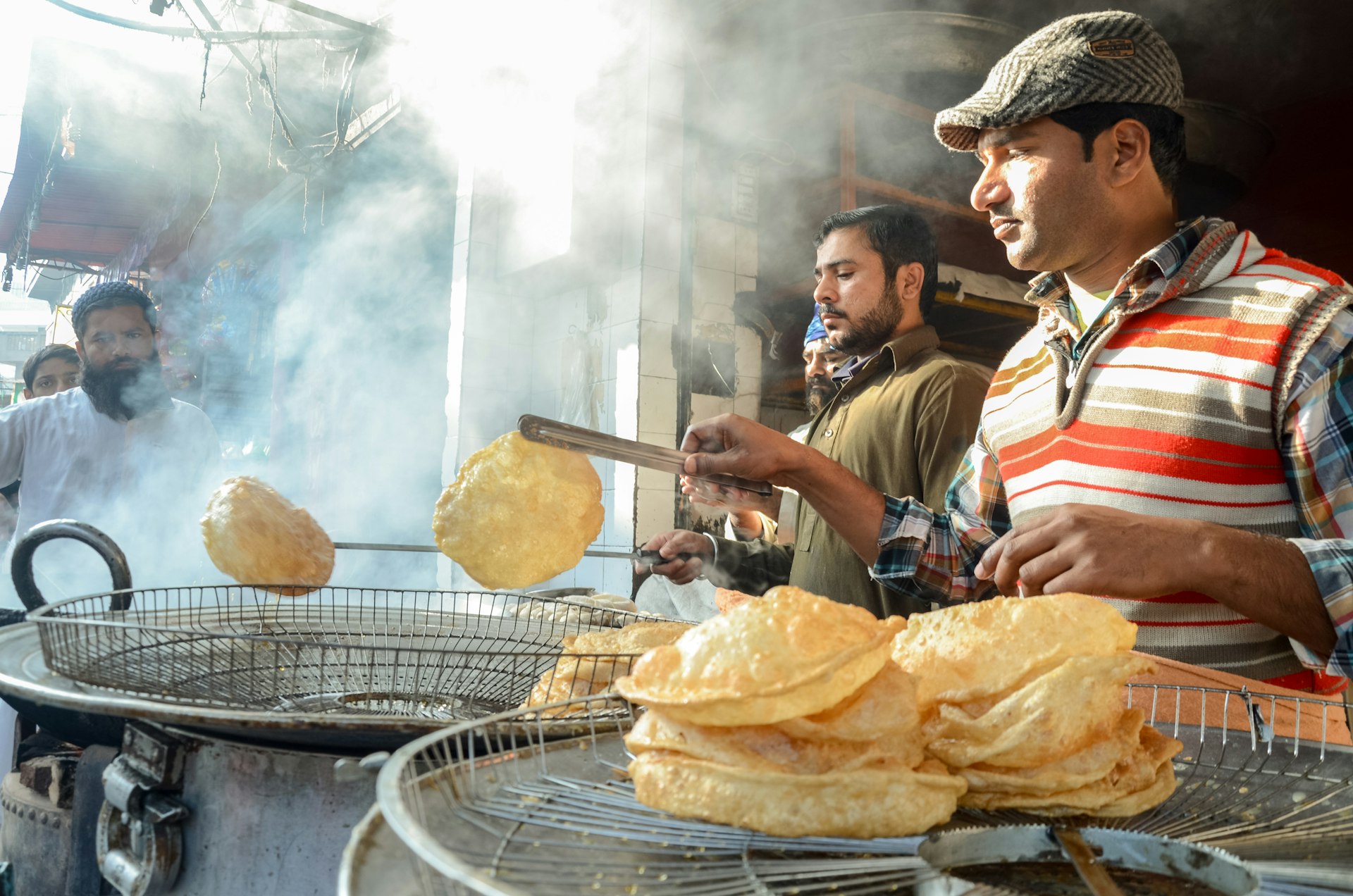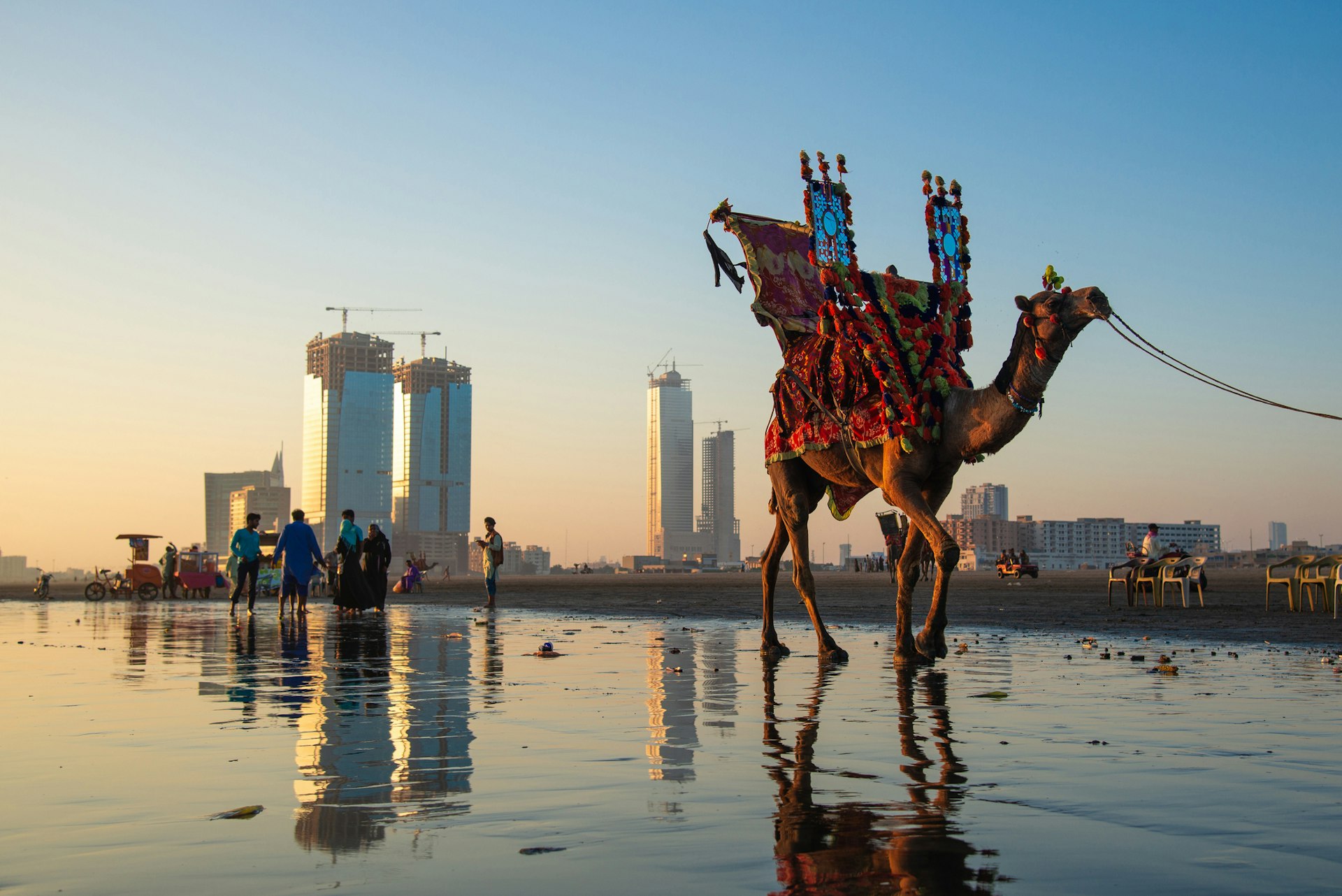Budget-friendly Pakistan should be an obvious choice for cost-conscious travelers who want a proper adventure without breaking the bank. Most of the country is accessible by public transport and you can find accommodation and food at budget prices wherever you go.
Visiting Pakistan out of season and traveling in the same style as locals will help you save money and also give you a more authentic and memorable experience. Here are our top tips for budget travel in Pakistan.
Daily costs in Pakistan
- Hostel dorm bed: US$5 to US$10
- Basic room for two: US$20 to US$30
- Self-catering apartment: US$30 to US$60
- Lahore to Islamabad bus ticket: US$7
- Coffee: US$0.40
- Sandwich: US$2
- Dinner for two: US$8 to US$12
- Average daily cost: US$35
Travel to Pakistan in spring or autumn
International flight tickets and your accommodation are likely to be the two biggest costs of any trip to Pakistan, so if you are looking to save money on travel, book your visit outside of the peak season. The summer months are the busiest and most expensive time to come, as many members of the Pakistani diaspora return from abroad during the school holidays and city dwellers head to the mountains of Gilgit-Baltistan to escape the sweltering heat.
The late spring months from March to May and the autumn months from October to November tend to be quieter, however. Temperatures are more pleasant, so you won’t need to book pricier air-conditioned accommodation and all parts of the country are accessible, including the mountains in the north. You will find better prices on flights and hotels right across the country.
Search for connecting flights to Pakistan
The airports in Karachi, Lahore, and Islamabad are well-served by international airlines, but the cost of direct flights can be high, especially on routes with lower demand. One of the top budget travel tips for Pakistan is to search for connecting flights via major hubs like Dubai and Istanbul, as competition on these busy routes drives down ticket prices.
You may also be able to book with a budget airline for one or more legs of the flight, but give yourself lots of time to connect, and always check whether or not hold baggage is included in the ticket price to avoid a nasty last-minute surprise and extra costs at the check-in desk.
Apply online for an electronic travel authorization
More than 60 nationalities are now entitled to apply for an electronic travel authorization (ETA) to visit Pakistan, which allows you to get your visa on arrival, so be sure to check if your country is on the list. If you apply online rather than submitting your paperwork at a Pakistan embassy or consulate, your visa will be cheaper and you’ll also save on travel costs to and from the consulate.
Note that the visa fee depends on which passport you hold, as well as the number of entries permitted, so if you are fortunate enough to be a dual national, apply with whichever passport is cheaper. The difference can be significant – British and American citizens pay US$60 for a tourist visa, while French and German travelers pay US$35.
Check which permits you need in advance
Access to some parts of Pakistan is restricted and you will need to get a No Objection Certificate (NOC) to visit. Check with the Pakistani embassy or consulate in your home country before you travel to see which permits are required for your itinerary. Apply well ahead, as trying to navigate this bureaucratic process once you are on the road can be costly, stressful and time-consuming. Having the correct paperwork in hand also reduces the likelihood of being asked for bribes at checkpoints.
Get a local SIM card
Foreign mobile phone companies will charge you a fortune if you use roaming services in Pakistan. If you are on a budget, it makes much more sense to bring an unlocked mobile phone and buy a local SIM card for data and calls. Jazz, Telenor, Zong and Ufone are the main operators.
Foreigners are often charged more for SIM cards than locals, so either ask a Pakistani friend to buy the SIM card for you, or purchase an eSIM that works in Pakistan.

Join the Couchsurfing community
Couchsurfing is pretty common in Pakistan and it’s a great way to save money on travel. Most of the listings are in major cities, which are normally expensive places to stay. In addition to cutting costs on accommodation, you’ll usually have access to a kitchen so you can prepare your own meals. Just as importantly, you will get an insight into local life and make new friends who will show you around, further enriching your experience. Start the search at Couchsurfing.com.
Stay in local guesthouses to save on accommodation
If you browse international hotel booking sites on the Internet, you’ll find hundreds of hotels in Pakistan, but if you’re traveling on a budget, steer clear of these properties as they tend to be much more expensive than hotels targeting locals. The best bargains are rooms in small guesthouses and government-run motels in less-visited destinations, and few of these are listed online.
It’s worth asking for accommodation recommendations as you move around the country. Calling places to stay before you arrive to check they have space is wise, but you can also turn up in person and ask for a bed or a room. Pakistani hospitality is such that it is very rare to be turned away; hosts will go above and beyond to find you somewhere to sleep, even if the property is busy.
Negotiate on room rates
Wherever you plan to stay in Pakistan, room rates are rarely set in stone. It is common for hotels to charge separate, higher rates for foreigners, but there is usually some room to bargain for a lower price. You will get the best discounts if you book directly, are staying for several days, and can pay for your room in cash.
If you’re prepared to share a dormitory room with others and use a shared bathroom down the hall instead of demanding your own en suite facilities, this will also bring down the cost of backpacking in Pakistan.

Eat on the street
Pakistani cuisine is a feast for all your senses, and eating out doesn’t have to blow your budget. You can save plenty of money in Pakistan by shopping for bread and fresh produce in local markets and having a picnic, or by buying snacks and meals from street food stalls.
Street food is almost always less expensive than food in cafes and restaurants, but there is still a lot of choice and the food is freshly cooked and delicious. Lahore’s food streets are particularly famous and well worth a stop on your itinerary. Stick to busy stalls – it’s a sign of good hygiene and quality food.
Enjoy (but don’t abuse) local hospitality
Pakistani people are incredibly hospitable and will frequently invite you into their homes for tea or dinner, or will try to pay for your meal in a restaurant. Such offers are genuinely meant and sitting down to eat with locals can lead to memorable social interactions and even lasting friendships.
There is a balance to be struck, however, between saving money on travel and taking advantage of your hosts. Remember that many of the people you meet will not be as well off as you, so do reciprocate the gesture or take a gift when you visit someone’s home (dried fruits, nuts and sweet treats are always appreciated).
Get around by bus or train to cut transport costs
Road and rail travel in Pakistan can be slow, but fares are usually a fraction of the cost of taking domestic flights or hiring a car and driver, and public transport is better for the environment, too. There is a reasonable railway network in Punjab and Sindh, and travel in AC Standard (AC Lower) class is comfortable and inexpensive. Booking a berth on a sleeper train will also save you a night’s hotel accommodation.
For travel almost everywhere else, you can take the bus or a minivan (and these brightly painted vehicles provide great photo opportunities). Minivans operate as shared taxis, and while they tend to be slightly faster than buses, it’s wise to do your own safety checks before you board, as some vehicles are poorly maintained.
Ride with trucks in the hills
With the limited public transport links in the mountains, grabbing a ride with a passing truck driver is commonplace (and generally safe) in the mountains of Pakistan, but use your common sense. On major roads such as the Karakoram Highway in the far north of Pakistan, there are plenty of truck drivers who are willing to give travelers a ride. While they may well be prepared to carry you for free, it is polite to offer them a small payment or to pay for a meal.
